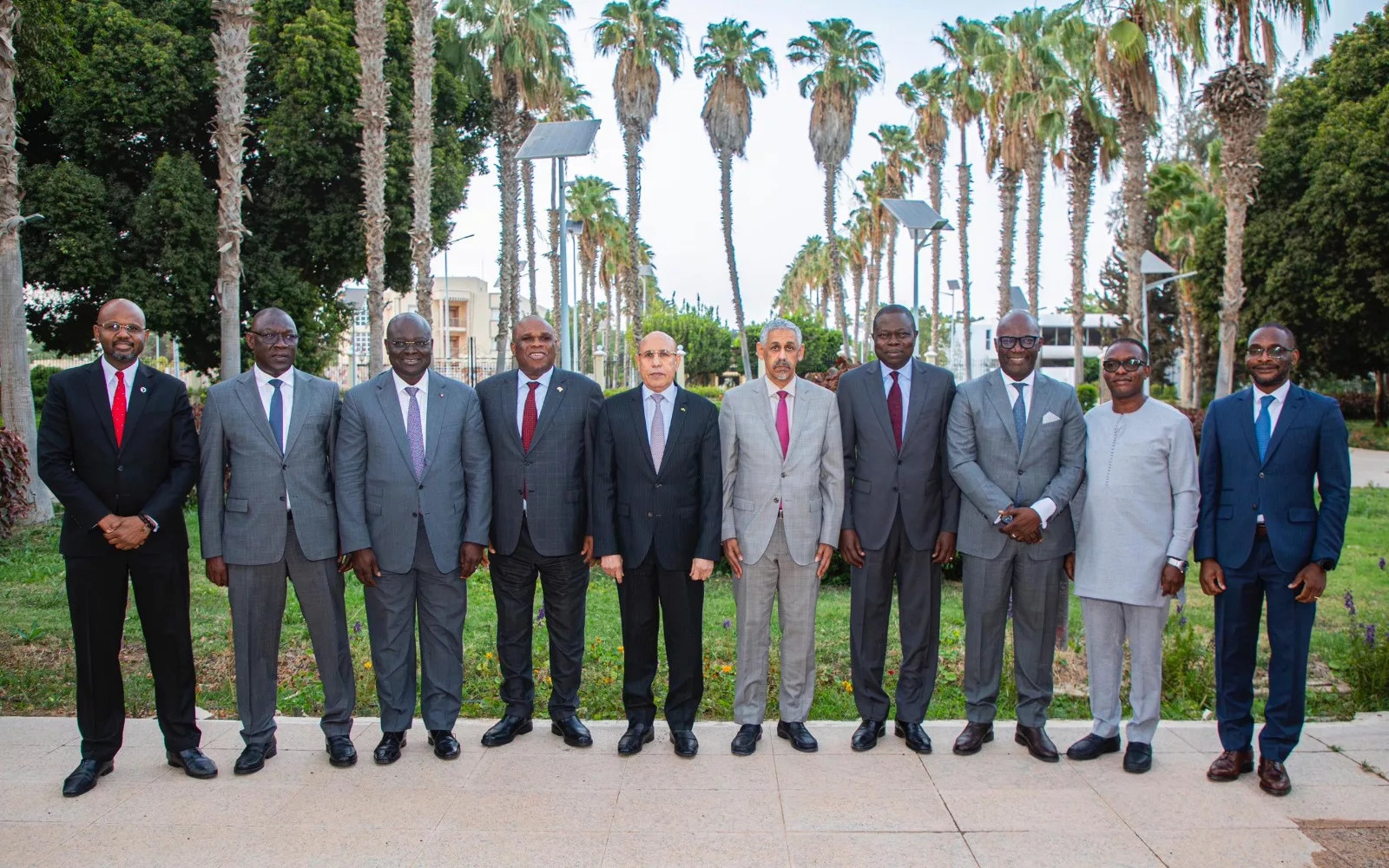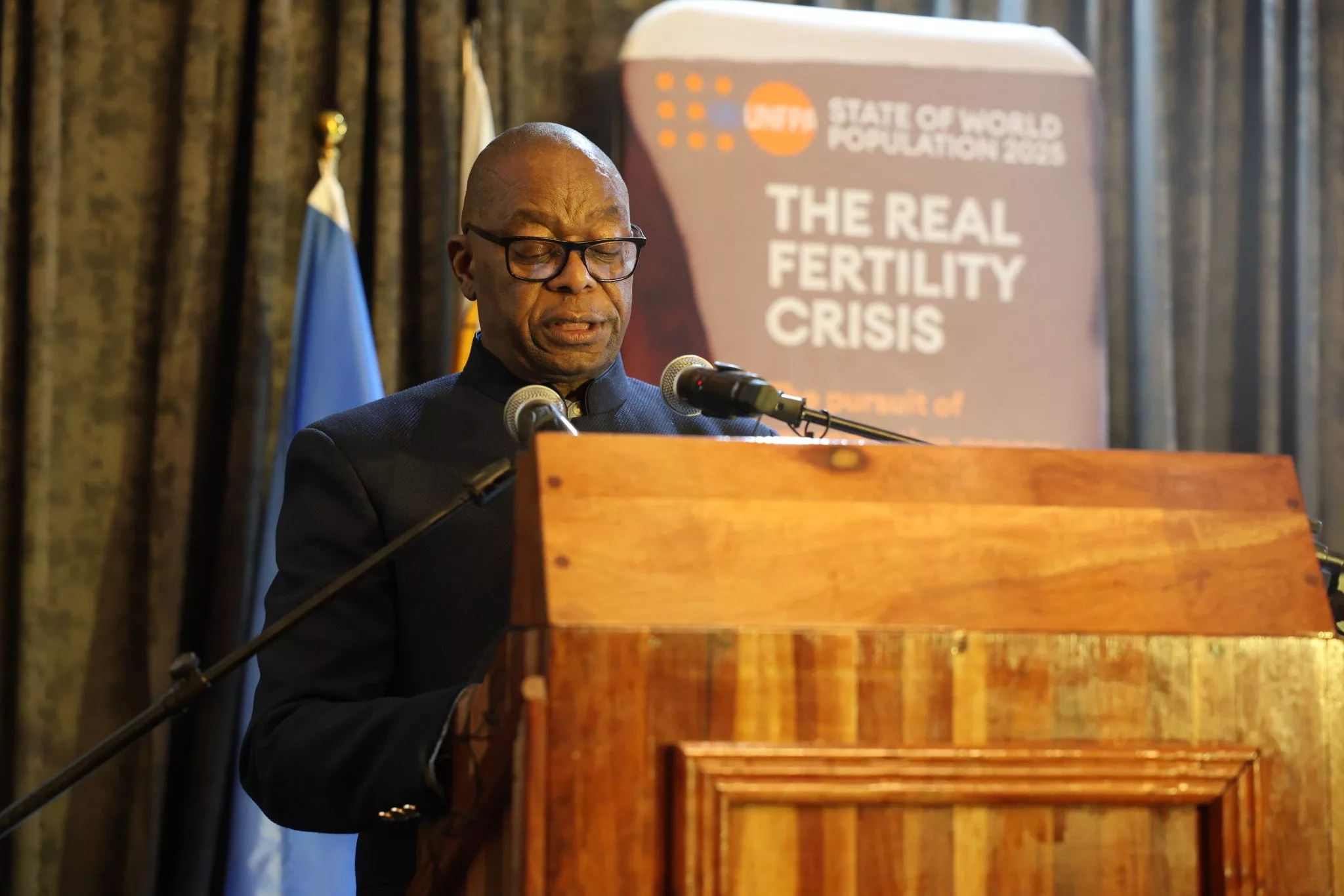|
Getting your Trinity Audio player ready...
|
Writes Baboloki Semele
In a powerful show of unity and commitment, leaders from Africa’s top multilateral and private sector institutions paid a significant visit to President Mohamed Ould Cheikh Al-Ghazouani of Mauritania, the current Chairperson of the African Union (AU). This high-stakes meeting underscored their unwavering support for the AU’s ambitious developmental agenda and transformative initiatives aimed at reshaping Africa’s future.
The delegation, representing a formidable coalition including the African Export-Import Bank (Afreximbank), Shelter Afrique Development Bank (SHAFDB), and the Arab Bank for Economic Development in Africa (BADEA), collectively boasts an aggregate balance sheet of over USD 75 billion.
The delegation was led by the Chairman of AAMFI and President of Afreximbank, Prof. Benedict Oramah, who underscored the significance of AAMFI’s establishment during President Al-Ghazouani’s tenure as AU Chair. He also underscored the role of AAMFI in advancing Agenda 2063 as a rallying platform for financing trade and development in Africa, especially under a strained international financial architecture.
Considering the 2024 AU theme; Educate an African Fit for the 21st Century, the meeting explored ways the continent can build the capacity of its growing youthful population and pledged to mobilise USD 2 billion to go towards vocational training and driving digital literacy, especially amongst the youth and women.
The Institutions also reaffirmed their support to the AU in fulfilling its role as a member of the G20 and pledged to put their full weight behind the continental body towards amplifying the African voice on critical global matters, such as climate action. In this regard, the Institutions acknowledged the unique needs and priorities of Africa on climate which should be advocated cohesively on global platforms such as COP29 and COP16.
This meeting, which comes under the auspices of the 2024 AU theme, “Educate an African Fit for the 21st Century,” is a bold step towards realizing Agenda 2063. It reflects a shared vision of a continent self-sufficient in education and skills, poised to tackle global challenges with local solutions.
President Al-Ghazouani welcomed the delegation’s commitment, particularly their resolve to promote “African Solutions to African Problems” (ASAP). Highlighting the urgency of financial autonomy, he backed President Nana Akufo-Addo’s call for African governments to invest a minimum of 30% of their sovereign reserves in African multilateral institutions. This move aims to fortify these institutions, enabling them to mobilize concessional resources crucial for the continent’s growth.
Prof. Oramah emphasized the strategic role of AAMFI, particularly in an era of strained international financial architecture. He highlighted the institution’s mission to advance trade and development across Africa, a vision powerfully echoed by Afreximbank’s innovative initiatives, such as the Pan-African Payment and Settlement System (PAPSS) and the USD 10 billion Adjustment Fund for the AfCFTA.
This historic meeting in Nouakchott is not just a ceremonial gesture but a clarion call to action. It signifies a pivotal moment in Africa’s journey towards financial independence, educational empowerment, and sustainable development.
The collective resolve of these financial titans to bolster the AU’s mission heralds a new era of intra-African collaboration and global influence, promising a brighter, self-reliant future for the continent.
Afreximbank is a Pan-African multilateral financial institution committed to financing and promoting intra and extra-African trade. With total assets of USD 37.3 billion as of December 2023, the bank has disbursed over USD 104 billion in support of Africa’s trade and industrialization. Afreximbank’s impact extends through its subsidiaries, including the Fund for Export Development Africa (FEDA) and AfrexInsure, and its investment-grade ratings affirm its financial robustness and strategic importance in Africa’s economic landscape.






